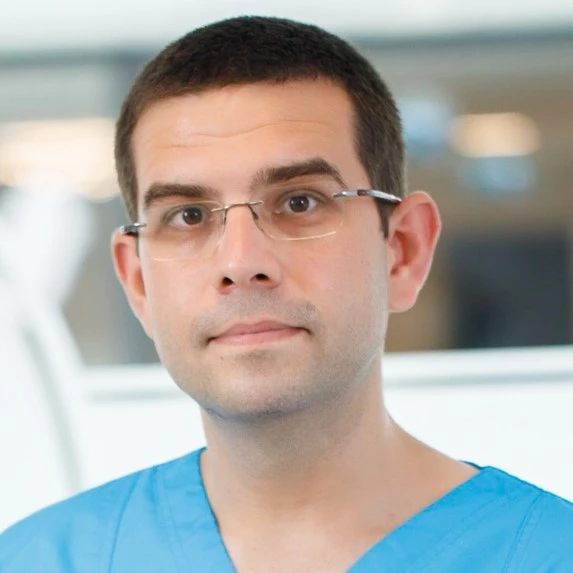We are pleased and honored to feature an interview with Dr. Theodor Voiosu, MD, PhD, Lecturer at UMF Carol Davila Faculty of Medicine, Gastroenterology Consultant at Colentina Clinical Hospital, about the profession of a gastroenterologist, future developments in this field, collaborative care, digital tools and his hopes for healthcare in the year ahead.

What inspired you to become a gastroenterologist, and what do you find most rewarding about your job?
I grew up in a family of doctors and my father, who is also a gastroenterologist, was a great inspiration for me when I was growing up. I was very fortunate that, in addition to being exposed to the medical world from an early age, I also happened to graduate medical school at a time when gastroenterology and digestive endoscopy in particular was undergoing a paradigm change, driven by innovation and technology. Ultimately, my choice of a medical profession is rooted in a chance encounter between personal history and the scientific progress which made gastroenterology one of the most exciting and promising medical specialties.
Can you discuss some of the most innovative and promising treatments for digestive disorders that are emerging in your field? What are some of the most promising developments in gastroenterology research, and how might they impact patient care in the future?
My clinical and research duty is mainly focused on endoscopy, especially for the diagnosis and treatment of malignant and premalignant conditions of the digestive tract. The advent of high-definition endoscopy which has been recently boosted by artificial intelligence software has been a revolutionary step forward. Furthermore, technological progress in terms of dedicated accessories and therapeutic platforms has pushed the limits of endo-therapy in such a way that has allowed endoscopists to blur the line between endoscopy and surgery, increasing the possibility of patients to benefit from minimally invasive therapies such as resection of large premalignant colorectal lesions and minimally invasive treatment of biliopancreatic cancers, some of the most challenging diseases in our field.
How do you work with other healthcare professionals, such as primary care physicians or surgeons, to provide comprehensive care for your patients?
The main point I would like to highlight is that modern medicine is a team effort. Decisions for treatment in complex cases, especially in digestive oncology, require collaboration between several specialties - radiology, oncology, pathology and surgery - and we hold regular multidisciplinary meetings to address these challenging cases. The tumor board at Colentina Clinical Hospital, my main place of work, is a particularly good example of such a collaboration that has developed over the recent years.
What are the top 3 digital tools that you’ve found particularly helpful in your practice (for research, information retrieval, treatment plans, etc. Answers can range from telemedicine platforms to clinical decision support systems, to educational resources or social media.)
The most important aspect for any physician is to keep up to date in his field of work. As such, online educational resources such as collections of journals and books (ie ClinicalKey, UpToDate) are vital for easy access to relevant information. Secondly, because we live in the time of image-guided therapy, platforms which provide easy access to imaging studies (ie Medicai platform) and allow cross-talk with other doctors are vital for getting the treatment plan right. Finally, electronic medical records databases, such as the one we use in our endoscopy lab, are vital to store and access patient records, including photo-documentation of previous procedures.
What are you hopeful about for healthcare in 2023?
Despite the huge progress in the medical technology field, the recent COVID-19 pandemic has shown us that, despite having vast resources at our disposal, we sometimes fail to understand and exploit their full potential. I would hope that 2023 brings about a much-needed discussion about the place of modern medicine in our everyday lives, with a focus on rebuilding the patient-physician trust at a societal level.


